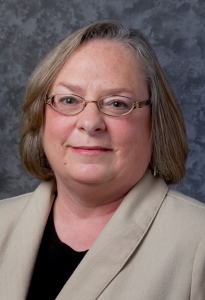
Legislative update from Rep. Pam Curtis, D-32nd Dist.
Feb. 19, 2015
My congratulations and best wishes to Joe Reardon who was named President-CEO of the Kansas City Area Transportation Authority this week. Joe made public transportation a priority during his tenure as Mayor, and I have no doubt that he will do an excellent job leading our regional transit authority. As Joe stated, ”Public transportation is the glue that holds communities together!”
Last week, Kansas college students visited the legislature and spoke to the Judiciary Committee about their proposed bill, Lifeline 911. This week, the committee passed it through favorably. The intent of this bill is to save lives, which is why I voted in favor of it. The bill would make it so any minor who is in need of medical assistance or sees someone who is can call for help and be granted immunity from criminal prosecution.
I also had the privilege of attending two events this week: The Kansas Chamber dinner and The Kansas Livestock Association dinner. These events allowed me the opportunity to speak with people from across the state, which I thoroughly enjoyed.
Thursday, I was part of a press conference for The Kansas Democrats and House Latino Caucus that discussed the unconstitutionality of a Senate bill that would negatively impact our immigrant communities. The bill would remove benefits from employers who have hired individuals in the president’s immigration program and prevents those individuals from obtaining drivers licenses.
It remains an incredible honor to represent our community in the Kansas House of Representatives. While the Legislature is in session, I do my best to stay in touch and keep you informed by email, and I spend countless hours every week helping my constituents solve problems. If I can be of service to you or anyone you know, call my office at 785-296-7371, or email me at [email protected].
Budget woes
A study released this week by the Institute for Taxation and Economic Policy identifies Kansas’ tax policy as the ninth most unfair in the country. The study cited the governor’s tax plan, which authorized tax exemptions for businesses and the wealthiest Kansans, as the reason why. The governor’s tax policy has created state revenue shortfalls and a budget deficit of over $1 billion over the next five years. Rather than looking for long-term solutions to address the problem, the governor wants to use single sources of revenue, like school district contingency budgets and the Kansas Highway Fund, to bridge the revenue gap.
Education allotment
After cutting $28 million from local school district budgets, the governor and his legislative allies are now suggesting that school districts use their cash reserve funds to make ends meet this fiscal year. These funds, however, are not flexible and local districts have already allocated the money to cover future expenses like virtual and bilingual education programs, summer school, and textbooks. The one-time use of these funds is not sustainable and does not address the real problem: our schools are underfunded. Failing to invest in public education threatens Kansas’ future.
T-Works
This week the House Transportation Committee voted to approve the governor’s request to sweep $724 million from the State Highway Fund in 2016 and 2017 to help fill projected budget deficits. The fund, which is a proven job creator, was established in 2010 to spur economic growth and development while improving Kansas roads. The move to sweep part of the fund will cost our state jobs and will defer scheduled maintenance on vital infrastructure like roads and bridges that Kansans use every day.
Sin taxes
In an attempt to offset the significant cost of his failed tax plan, the governor is proposing to raise consumption taxes to generate more revenue for the state. On Wednesday, the House Taxation Committee heard the governor’s proposal which would:
• nearly triple the tax on cigarettes from 79 cents to $2.29 a pack,
• and raise the tax on alcohol from 8 percent to 12 percent
Business owners testified to the committee that the bill would push sales across state lines into Missouri, causing them to lose business. Thus far, the governor has not been able garner support for the bill from members of his own party so it is unlikely that the new taxes will pass.
Judicial selection
Several proposals are circulating in the capitol to change the way Supreme Court justices are selected. The current process is merit-based and nonpartisan; a nine-member commission forwards three nominees to the governor for selection. Seeking to change the process, the House Judiciary Committee recently passed two proposals:
1. Appointment by governor, with Senate confirmation, and
2. Direct election of justices by voters in a partisan election.
An independent, non-partisan judiciary is essential to the state’s system of checks and balances and electing judges in a partisan fashion, or allowing the governor to appoint justices skews that balance and threatens the principle of democracy in our state.
Bill bans professors from voicing opinions
The House Education Committee heard testimony this week on a bill that would prohibit employees of state universities and community colleges from using their official titles in newspaper opinion columns if they are about a person who currently holds any elected public office. Opponents of the bill claim it infringes on public education employees’ freedom of speech, and that the measure is unwarranted.
